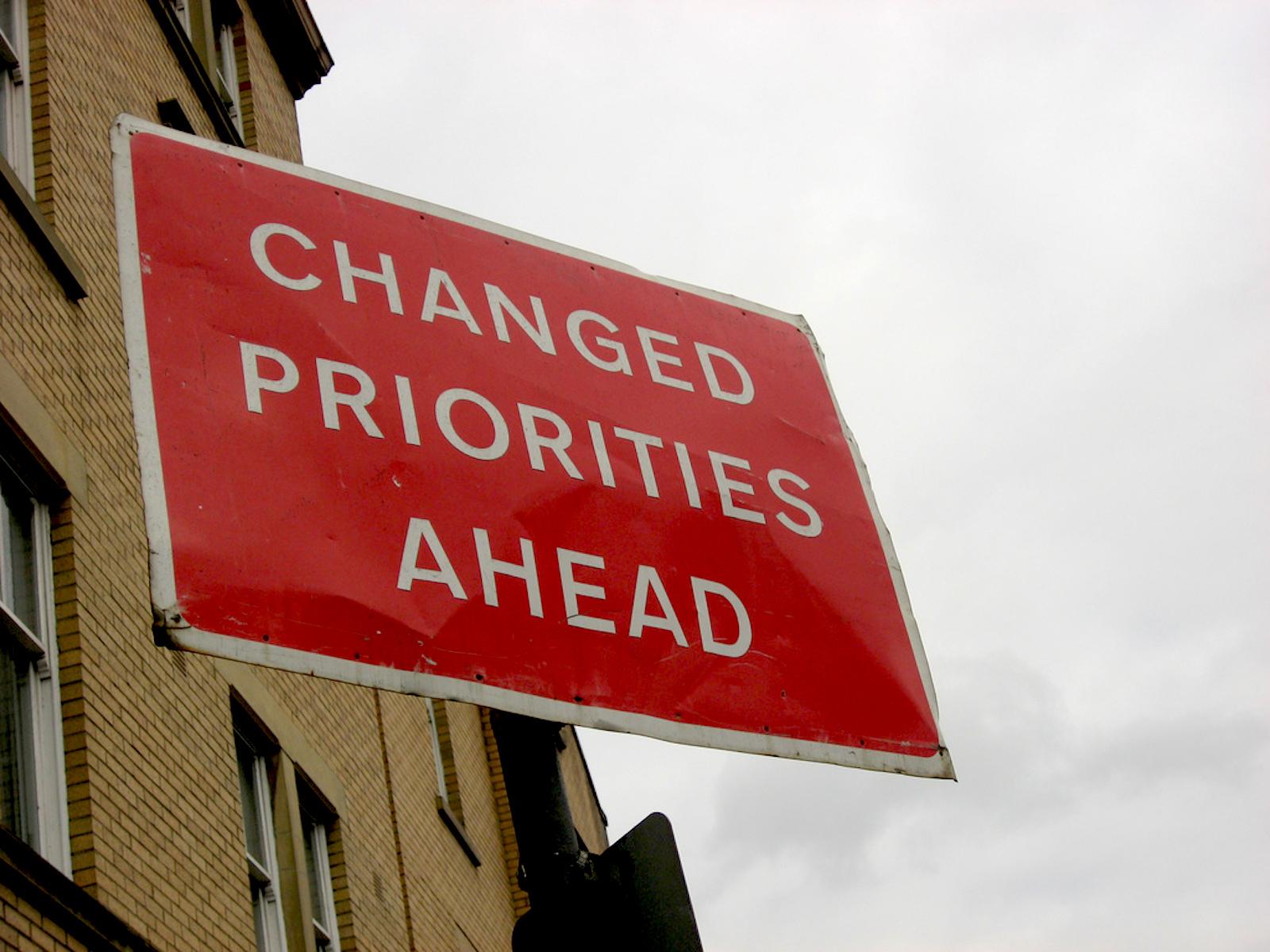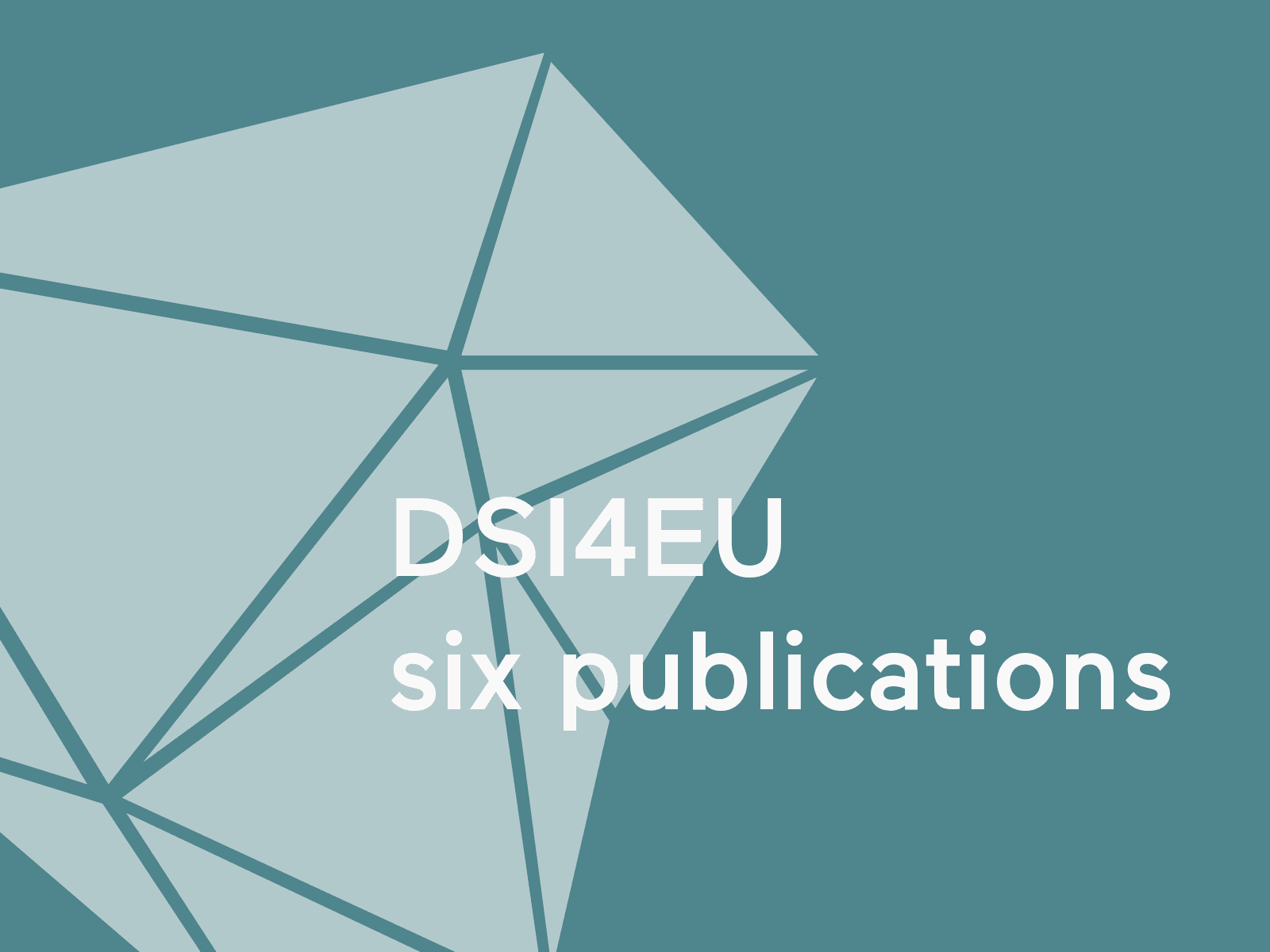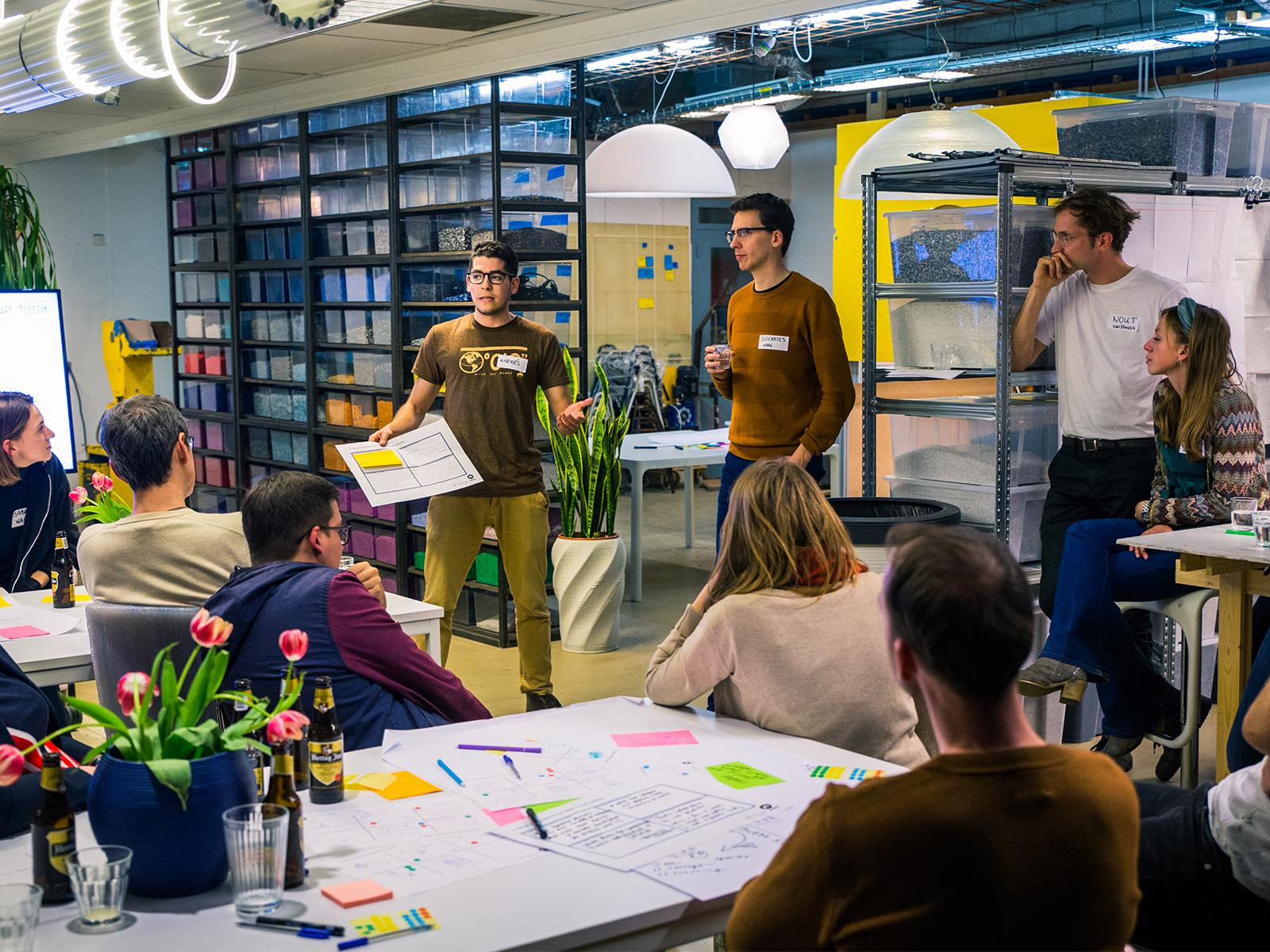Digital technologies have been making headline after headline in the past few years. From the gradual victory of 'open access' publishing in science to the risks of an all-powerful Facebook, the influence of Internet technologies is growing unabatedly. What one day seems to be a ‘nice tool’ may the next day become a concern for privacy or social cohesion. For example, millions upon millions of people have gained access to attractive, ‘free’ products, but pay by giving away valuable personal data. And ‘smart’ technologies such as violence-detecting cameras can make urban surveillance more efficient, but are expensive and introduce new operational and social risks to the city, such as discriminatory conduct and a culture of suspicion.
On the other hand, minute inventions can turn into powerful change-makers for societal matters in no time. For example, Rainforest Connection builds acoustic monitoring systems to protect Amazonian forests from illegal deforestation. Its systems run on second-hand mobile phones transformed into solar-powered listening devices that enable real time alerts if suspicious sounds are detected. By merely repurposing existing devices, implementing sound recognition and wiring them up on tall hardwoods, Amazonian communities gained an affordable tool to remotely monitor their forests.
All of this is to illustrate that digital innovation is powerful, and as such is cause for both hope and concern. It is not easy to draw a line between ‘good’ and ‘bad’ innovation, but a starting point is to confront the social effects – both realised and potential – of emerging technologies.
Digital social innovation
Acceptance of new digital technologies as potent ingredients for a better society can seem to go unchallenged. The emphasis put on technology by governments and corporate actors can lead to stimulating high-capital tech investment at the cost of overlooking more subtle social processes. ‘Digital social innovation’ (DSI) aims to level the attention given to technology vis-a-vis the intricacies of social innovation. Social innovation acknowledges that innovation is complex, muddy, and brings forth positive and negative spillovers to different parts of society.
In the digital realm, the social risks converge around accumulating new concentrations of power and ending up with systems that are not quite suited to the needs of certain (or most) users. The concept of digital social innovation therefore focuses on the development of low-risk, highly accessible digital solutions for social challenges. By involving concrete communities in the design and implementation of technology, citizens are empowered and negative indirect effects of technologies can be largely avoided. DSI advocates often explicitly seek to nurture citizen cooperatives and other non-profits to become key contributors to, and perhaps owners of, digital innovation. Openness and decentralisation are key concepts of DSI, and advertising and surveillance models are generally rejected.
Current economic routines create a barrier for these non-commercial, decentralised solutions to reach fruition, however. The opportunity to use technology cooperatively and for social ends is therefore not reaching its full potential. In order to strengthen and spread DSI, progress is needed on several frontiers at the same time. Based on our research for the DSI4EU project so far, we have come up with a set of five top-line priorities for the advancement of digital social innovation:
- Open software and hardware
- Making the data commons
- Let communities shape the technology
- Routing investment towards DSI
- Boosting collaborative action
Below, these five priorities are discussed concisely.
1. Open software and hardware
Earlier this month, Waag organised a DSI Talk about ‘Open Source Sustainability’ to put the attention to the key role of open source. Open source software and hardware enables initiatives to freely develop technological solutions that meet their specific needs. There is a wide diversity of open source projects. Examples range from the adaptable community platform Gebiedonline, the peer to peer food distribution platform Open Food Network (see also our interview with OFN) and the open source tool OpenEnergyMonitor, to advanced software packages like LibreOffice.
Open source helps DSI initiatives to remain independent from private, profit-driven suppliers. Locating and adopting relevant open source applications can however be a challenge, since many ‘free and open source’ (FOSS) applications lag behind their commercial counterparts in terms of functionality and user-friendliness. Increasing the accessibility and quality of open source applications is therefore essential for enabling the further development of social and sustainable Internet technology.
2. Making the data commons
If DSI priorities had battle cries, this one would sound ‘We own the data!’ Data should be owned and managed in common, by citizens and communities, instead of hoarded by private firms. Data commons give people the opportunity to store their data securely, decide on how they are used, and with whom they are shared.
Self-ownership of one’s own data is the first and foremost principle that should be put into any data practice. This is very much compatible with a data commons approach. While data commons are inspired by the first priority - that of opening up code and data - a commons approach does not plead for opening and sharing all of our data. It rather recognises (1) that most data is sensitive and (2) data can be put both to good uses and bad ones. Therefore we must approach data pools as commons: resources managed and protected by empowered communities, rather than left open for anyone to graze. As such, self-ownership is more likely to be supported in a commons rather than in a privatised model.
The DECODE project aims to develop a tool that allows people to remain in control of their personal digital identity and their data. The tool will allow people to select what personal data they want to share with whom and for what purpose. Based on that technology, DECODE is also working on the architecture needed for the development of data commons. This October, the DECODE pilot on municipal data commons will kick off in Barcelona. And on 8 November, Waag will host a DSI Talk on this topic in Amsterdam, where we will actually launch a data commons on urban bicycle data.
3. Let communities shape the technology
Owning the data (see priority 2) is a necessary, but not wholly sufficient condition for digital social innovation. The question ‘Who shapes the technology?’ has become increasingly relevant in a time where digital technologies influence and alter cities all over the world. While new ‘smart’ technologies can offer solutions to community challenges, their implementation often obstructs the inclusive character of digital cities: citizens are rarely involved in such processes of innovation.
To ensure that technology addresses issues relevant to communities, the communities themselves should decide what technological solutions are best to use and how this should be done. One key way to achieve that is through co-creation. Co-creation is a method to engage users in design processes, by way of thinking, designing, and building together in multidisciplinary teams in which personalised and unique experiences arise. Waag is developing the Co-Creation Navigator, a comprehensive guide and tool for anyone to use.
Community involvement in technological development is not only relevant for ordinary citizens: FarmHack.nl, for example, brings together hacker, planner and farmer alike to make sure the novel world of ‘Agritech’ and ‘smart agriculture’ unfolds in the benefit of society with applications that match the needs of the farmer.
4. Routing investment toward DSI
Money. There is an awful lot it can’t buy you, but for DSI it does come in handy. Digital social innovation requires substantial investment in local, purpose-driven solutions and improved procurement so that small-scale innovations become viable and gains more potential to grow.
‘Digital technology’ may sound like the type of solution that, once invented, is applicable everywhere, but quite the contrary is true. Digital social innovation therefore strives for a high level of community (or stakeholder) engagement and respond to local contexts (see priority 3). That introduces a funding challenge, however. DSI projects aim for a diversity of values, often ‘soft’ and social values that are difficult to measure and take time to mature. Therefore, DSI initiatives often rely on intensive networking to brush together the resources and commitment to get things done. The earlier mentioned Farmhack.nl stuck a name to this model - mosaic funding - but admittedly, there is little choice.
Some funding models that do suit DSI are tailored funds like Prototype in Germany and SIDN in the Netherlands, the Social Challenges platform operating at the EU level, or crowdfunding solutions. Prizes are growing in popularity as a funding tool, but cannot replace more structural and reliable means of remunerating the DSI community for their work. As it stands, solid funding options for DSI are few and far between in most regions.
5. Boosting collaborative action
DSI aims genuinely to help people collaborate through the means of digital connectivity and online platforms. Whereas the major social media seem to have degenerated into advertising and data harvesting machines, online collaboration is possible. For example, Nudge is a Dutch platform that showcases a range of sustainability-related initiatives, helps connect communities of practice, and encourages sharing of knowledge and experience.
True online collaboration is, however, not so easy to achieve. Social media have had greater success boosting ‘fastfood’ interactions than facilitating new types of cooperation and dialogue. This online reality mirrors that of the offline world. Today, there are not too many precedents of collaborative ownership and action. We have become used to markets and governments to do things for us; things that also have become very complex and not something anyone can just easily do in their spare time. The uptake of renewable energy, for example, is strong, but community energy is still a fringe activity.
So how do we properly develop open, cooperative platforms that spur collaborative action and the sharing of knowledge, experience and solutions? How do you get long term engagement of the user community? These questions are not straightforward, and depend - we argue - on progress made on the four other DSI priorities above.
DSI can provide a social and sustainable path for digitally innovative solutions by adopting technology in ways that empower citizens, raise awareness, and support communities. DSI4EU aims to grow and scale this movement by connecting people and organisations active in the field, exploring their needs and challenges, and informing policy accordingly.


